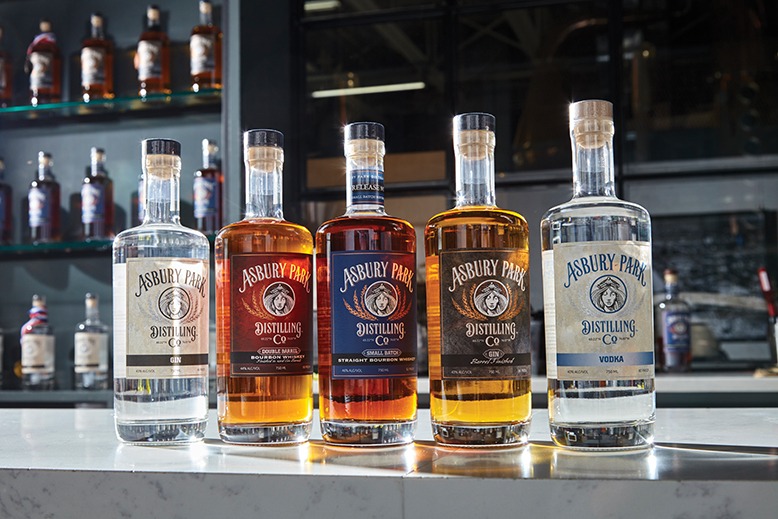
From left, Asbury Park Distilling’s bottles of gin, Double Barrel bourbon, Small Batch bourbon, barrel-finished gin and vodka showcase the color range of craft spirits. Photo by Felicia Perretti
MORE FROM THIS PACKAGE:
An Insider’s Guide to 25 New Jersey Distilleries
The Story Behind Laird & Company, Our Country’s Oldest Distillery
1780
Laird & Company in Scobeyville receives License No. 1 from the U.S. Department of the Treasury, becoming the country’s first licensed distillery.
1834
NJ is home to upwards of 388 different distilleries.
1919
The 18th Amendment triggers Prohibition, killing the Garden State’s distilling industry.
1933
Prohibition is repealed with the 21st Amendment.
1972
Laird’s stops distilling in NJ.
2012
Craft-distillery license bill is introduced to the state Senate.
2013
March: Jersey Artisan Distilling receives plenary license, becoming NJ’s first new distillery in 94 years.
August: Governor Chris Christie signs legislation that changes NJ’s distilling laws, allowing artisanal distillers to open. Annual cost is lowered from $12,500 to $938.
December: Craft-distillery license law goes into effect.
2014
Cooper River Distillers receives first craft distilling license.
2018
Cooper River, Camden County’s first craft distillery, closes.
2020
NJ distilleries quickly begin producing hand sanitizer in response to the Covid-19 pandemic.
